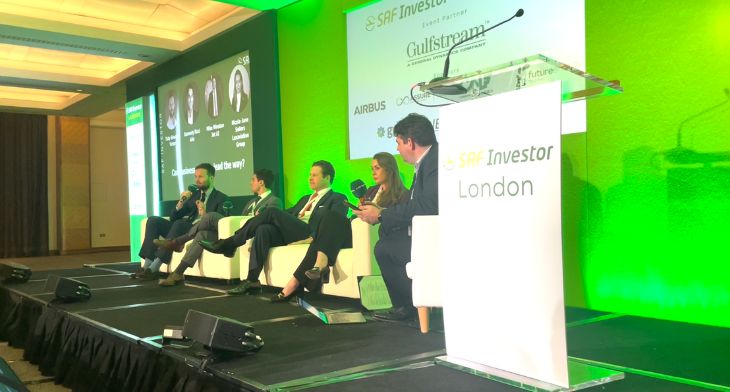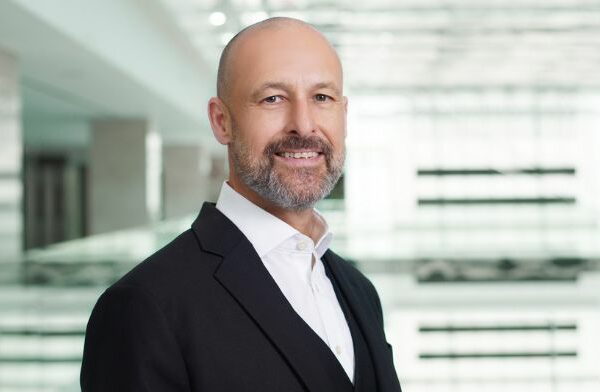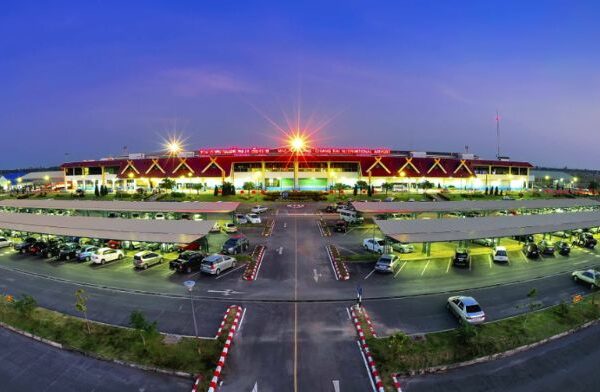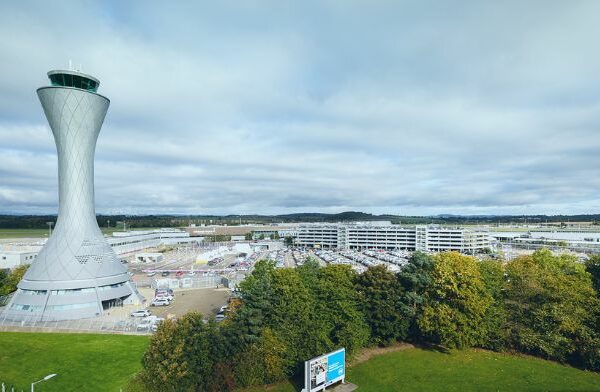


There is no denying the demand for SAF. Airports, operators, OEMs and customers all want it. What’s more, investors are ready to spend. The challenge is scaling up supply. That was the message following the first day of the inaugural SAF Investor summit taking place in London from 27-28 February.
In an opening keynote to kickstart the day, Shashank Nigam, founder and CEO Simpliflying underlined that by 2042 the global aircraft fleet will be 50% larger than it is now, growing from 29,000 to 42,000 aircraft. SAF will be essential to fuelling that fleet and achieving the industry’s net zero targets.
Jan Wille, EMEA Aerospace and Defence Leader at PwC referenced the consultancy’s ‘Feedstock to flight’ study, which revealed that the ramping up of SAF supply is much slower than it should be. By 2030 we will need 46m tonnes of SAF and would need to build another 100 refineries to meet demand before the end of the decade.
The good news is the willingness is there across the industry. From innovators to investors and everyone in between, stakeholders are pledging their support to scale up SAF and explore other sources and methods to produce it as well as alternative pathways to decarbonise aviation. As one delegate said during a networking break: “For the passenger, it’s a choice between a coffee in the departure lounge or spending that money on SAF.”
Challenges the industry faces in meeting increasing demand include availability and scalability of sustainable feedstocks. Technology pathways also need greater investment, while more transparent communication is required to educate the wider public of the benefits and availability of SAF. “As little as two years ago there was still a lot of scepticism, but people are now approaching us for advice on how to invest and where SAF is available. The space is developing quickly,” said Wille.
He was joined by Nikhil Sachdeva from Roland Berger who stressed we have a roadmap to decarbonisation and SAF is part of that solution. “It’s an industrial challenge, not a science challenge,” he said reiterating that SAF is available now, whereas other technologies are still in the research and development phase.
Setting the record straight
A fireside chat between Gulfstream’s Director, Demonstration, ACS, Corporate Flight Operations, Scott Evans, and EBAA’s Sustainability & Future Workforce Manager, set the record straight that while Virgin Atlantic was the first commercial airline to fly a 100% SAF-fuelled transatlantic flight, Gulfstream had in fact completed the first ever 100% SAF-fuelled transatlantic flight the week before on a G600. “Business aviation,” said Evans, “had the ability to be nimbler and more flexible, but it also has a responsibility to analyse and share its findings for the greater good of the industry.”
In a discussion on offtake agreements, Wizz Air’s Yvonne Moynihan said there’s currently a tailor-made approach to these agreements and they need to be standardised to create fair competition and to factor in the logistical and transportation costs of SAF to and from airports. Dana Kaplinksi of Delta Air Lines agreed, saying no two offtake agreements have the same pricing structure. In these early stages offtake agreements are really there to help scale production and build facilities. But offtake agreements are key to understanding how much demand there is from commercial carriers for SAF.
There is a future for e-Fuels
During a discussion on e-Fuels, Alex Chikhani, founder and CEO of CirculAIRity said, “We need to put the planet first, not the commercial model,” as he underlined the need to stop thinking just about the economic cost, but also to look at the environmental cost of aviation activity.
Reiterating that e-Fuels need policy support to get off the ground, Andy McNeill, Business Development Manager at Arcadia eFuels, said: “We need to de-risk first few-of-a-kind plants. Policy here is key.” He also warned stakeholders not to talk down the cost of producing e-Fuels. “For the first few of a kind projects, this is an expensive pathway, but it’s essential we start out by the mid 2030s. e-Fuels will be critical across the transport sector, be it aviation, haulage, shipping or road transport,” he said.
Book and claim for small, regional hubs
The benefits of “book and claim” were raised during various panel discussions throughout the day, with Kennedy Ricci, President, 4AIR, saying that for business aviation “book and claim” makes a lot of sense, particularly when many of the customers are flying to smaller, regional airports where delivering a physical supply of SAF will carry its own carbon footprint. Nicola-Jane Sellers, Group Sustainability Manager, Luxaviation, added: “The majority of our clients use smaller airports, so it’s important we make use of book and claim, enabling them to access the benefits of SAF.”
The problem is European policymakers are preventing customers from acquiring SAF credits through “book and claim” accounting systems. This, agreed panellists, needs to be addressed.
On the investment side, panellists from AMEX GBT, Rock Creek, Contrarian Ventures and International Airlines Group (IAG) said investors are ready to spend. Funding is available for the right ventures. “To decarbonise, we have to take long-term bets,” said Matt Ridley, Investment Principal, IAG. Anahita Smeets, Vice President at Rock Creek declared: “We need to be comfortable with a business’ ability to raise future capital for its projects, but also the team, technology maturity and a diversified portfolio are all criteria that will attract investors.”
Ridley agreed. “Fund seekers need to fit in with our diversity strategy and complement IAG’s existing portfolio,” he said. Nicole Sautter, Director of Global Sustainability, AMEX GBT also stated. “At this stage, we need to consider all ventures. We won’t rule anything out!”
A load of rubbish
As the day drew to a close, discussions continued to invigorate the audience with an insightful session on “Trash talking: Municipal waste”. Understanding the economics and feedstock competition with the energy sector is a major consideration when it comes to producing SAF from municipal solid waste (MSW). But the underlying principle here is that one man’s waste is another man’s treasure and MSW has huge potential (both environmentally and economically) as a global feedstock.
Sharing how sewage can be turned into SAF, Firefly Green Fuels’ James Hygate said: “It’s abundant, ubiquitous, low cost and biogenic. It offers a 93% overall carbon saving making it a very low carbon fuel.” Ultra low-cost carrier, Wizz Air, has already committed a £5 million investment in Firefly.
The spotlight also shone on the role that business aviation has, despite only accounting for 2% of all aviation’s emissions, in leading the way to decarbonisation. Revealing that 20% of Victor’s customers are flying with SAF, Managing Director, Toby Edwards, said “The real opportunity is in educating and communicating more efficiently with the end user.”
Nicola-Jane Sellers, Group Sustainability Manager at Luxaviation, concurred: “We are seeing a significant uptake in customers willing to uplift SAF, but it’s a slightly different story when it comes to aircraft owners as they are concerned with the costs involved in maintaining aircraft and ensuring they are fit for purpose. “We need to articulate the benefits of SAF and that it is safe to use. If we fail to achieve that, it will be hard to drive the voluntary uptake.”
With business aviation providing a valuable test bed for initial hydrogen and electric flights, infrastructure and other SAF technologies, 4Air’s Ricci concluded: “We need to turn it around so that business aviation helps commercial aviation and we can use the funding from wealthy customers to help fund some of the solutions.”
As the day drew to a close and delegates headed off for the SAF Investor Awards 2023, it was with an air of optimism and renewed determination to get behind the many initiatives and pathways to scale up SAF. There is no perfect solution for decarbonising aviation, but that doesn’t mean that the imperfect isn’t good enough. As Gene Gebolys, CEO, World Energy, said at the start of the day: “We have to act now. What we’re doing today isn’t what we’ll be doing tomorrow. Innovation happens by doing what you can, when you can.”





